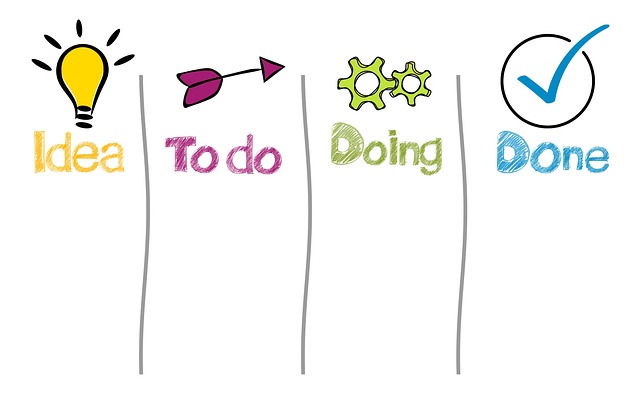In the digital age, AI assistants are key to business growth and scaling operations. They handle diverse tasks from customer service to data analysis, improving efficiency and allowing human employees to focus on creative responsibilities. Integrating AI assistants strategically into workflows involves assessing current tasks for automation, creating an "AI funnel" for streamlined processes, and measuring KPIs to track improvements in areas like order fulfillment and customer satisfaction. This approach leverages AI tools like chatbots and automation systems to optimize e-commerce operations and enhance overall business productivity.
In today’s fast-paced business landscape, leveraging AI assistants presents a powerful opportunity to scale teams and operations efficiently. This article explores how businesses can harness the capabilities of AI technology to streamline workflows, automate routine tasks, and foster seamless team dynamics. By understanding the potential of AI assistants, integrating them into existing processes, and optimizing for maximum impact, organizations can achieve significant growth while ensuring effective resource allocation and improved productivity.
- Understanding AI Assistant Capabilities for Scaling
- Integrating AI Assistants into Existing Team Dynamics
- Optimizing Workflows and Automating Routine Tasks
- Measuring Success: Evaluating AI Assistant Impact on Business Growth
Understanding AI Assistant Capabilities for Scaling

In today’s digital era, businesses are increasingly leveraging AI assistants as a powerful tool for scaling operations and team productivity. Understanding the capabilities of these advanced technologies is crucial when it comes to strategic growth. AI assistants, also known as AI agents or bots, can perform a wide range of tasks, from handling simple customer inquiries and scheduling appointments to automating repetitive processes and analyzing vast datasets. By integrating an AI assistant into your business workflow, you can achieve significant improvements in efficiency and productivity.
The versatility of these digital tools is particularly beneficial for businesses looking to scale their operations. AI automation capabilities allow for streamlining routine tasks, enabling human employees to focus on more complex and creative responsibilities. This not only accelerates growth but also enhances overall job satisfaction by reducing mundane workloads. Moreover, AI agents can adapt and learn from user interactions, continuously improving their performance over time, making them an invaluable asset in the ever-evolving business landscape.
Integrating AI Assistants into Existing Team Dynamics

Integrating AI assistants into existing team dynamics requires a thoughtful approach to ensure seamless collaboration between human and artificial intelligence. Initially, it’s crucial to assess current workflows and identify tasks that can be automated or enhanced by an AI assistant. This could range from handling routine customer inquiries through a chatbot to managing scheduling and task assignments with smart, personalized support from AI agents.
By strategically placing these AI tools within established team processes, businesses can create an efficient “ai funnel” where information flows smoothly. For instance, a chatbot could triage incoming customer interactions, gathering initial details and providing immediate responses or escalating issues to human agents as needed. This not only scales operations by offloading tasks but also improves overall team productivity by allowing members to focus on more complex, value-added responsibilities.
Optimizing Workflows and Automating Routine Tasks

In the context of AI assistant for business scaling, optimizing workflows and automating routine tasks are key strategies to enhance efficiency and productivity. These intelligent tools can significantly streamline operations by handling repetitive, time-consuming activities, such as data entry, scheduling meetings, or responding to simple customer inquiries. By leveraging ecommerce ai and integrating ai chatbot solutions, businesses can free up valuable human resources for more complex and creative tasks.
For instance, in e-commerce settings, an ecommerce automation system can manage inventory updates, generate personalized product recommendations, and even handle basic order processing. This not only reduces operational costs but also improves customer satisfaction by providing faster and more accurate service. As a result, teams can focus on strategic initiatives, market analysis, and enhancing the overall customer experience.
Measuring Success: Evaluating AI Assistant Impact on Business Growth

Measuring the success and impact of an AI assistant on business growth is crucial for understanding its true value in scaling operations. Key performance indicators (KPIs) should be established to track improvements across various departments. For instance, in an ecommerce ai automation agency, metrics like order fulfillment time, customer service response rates, and conversion rates can provide insights into the AI’s efficiency. If these KPIs show significant improvements over time, it indicates successful integration of the AI assistant, leading to enhanced productivity and better business outcomes.
Evaluating the impact involves analyzing both qualitative and quantitative data. This includes customer satisfaction feedback, employee feedback on workload reduction, and financial metrics such as cost savings and revenue growth. By combining these measures, businesses can gain a comprehensive view of how the ai funnel technologies are driving growth and making operations more scalable. Such insights enable informed decision-making about future AI implementation strategies within the organization.
By understanding and leveraging the capabilities of AI assistants, businesses can significantly scale their operations and teams. Integrating these advanced tools into existing workflows streamlines processes and enhances productivity. Optimizing tasks allows for automation, freeing up valuable time for employees to focus on strategic initiatives. As organizations measure the impact of AI assistants, they’ll recognize the profound effects on business growth and be well-positioned to harness the power of artificial intelligence for future success in team scaling.
